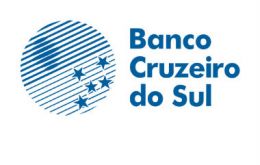MercoPress. South Atlantic News Agency
Economy
-
Saturday, September 15th 2012 - 05:24 UTC
Brazil economic activity picks up in July, but will end below 2% in 2012

Brazil’s economic activity rose more than forecast in July, posting the biggest expansion in almost a year. The non-seasonally adjusted economic activity index rose 2.34% from a year earlier after rising 0.99% in June, the central bank said in a report.
-
Saturday, September 15th 2012 - 05:19 UTC
Two Brazilian mid-sized banks ordered liquidation by monetary authorities

Brazil's central bank ordered the liquidation of Banco Cruzeiro do Sul on Friday after no one stepped up to acquire the troubled lender, raising doubts about government oversight of small and mid-sized banks.
-
Saturday, September 15th 2012 - 05:13 UTC
Argentina’s money supply adjusted for inflation climbed 22.6% in last 12 months

A benchmark measure of Argentina's money supply rose 34.6% on the year in August, according to the central bank. In its monthly monetary report published late Thursday, the Central Bank of Argentina said its M2 measure of money supply averaged 403.93 billion Argentine pesos (86.6 billion dollars) last month.
-
Friday, September 14th 2012 - 05:18 UTC
Auction of Pluna’s Bombardier aircraft collapses: terms “non attractive” and “non viable”

Uruguay’s attempt to auction the bankrupt national airline Pluna aircraft collapsed because none of the groups that showed an initial interest turned up arguing that the 136 million dollars for the seven Bombardier CRJ900 NextGen was “not attractive” and considered the whole business deal “non viable”.
-
Friday, September 14th 2012 - 00:51 UTC
Brazilian extends tax breaks to two dozen industries to stimulate economy

Brazil rolled out additional stimulus measures to bolster its sluggish economy on Thursday, extending tax breaks to more than two dozen industries and reducing the cost of acquiring capital goods in a bid to help struggling local businesses.
-
Thursday, September 13th 2012 - 18:42 UTC
Fed announces further financial stimuli for the US economy to help employment

The US central bank announced on Thursday it will resume its policy of pumping more money into the economy via so-called quantitative easing which consists of buying “additional agency mortgage-backed securities at a pace of 40 billion dollars per month”.
-
Thursday, September 13th 2012 - 17:12 UTC
Switzerland tightens taxes on wealthy foreigners living in the country

Switzerland will keep its special low-tax deals for wealthy foreigners such as music and sports celebrities but increase the amount of tax they pay following a vote by parliament which faced pressure to scrap the system.
-
Thursday, September 13th 2012 - 17:07 UTC
Argentina’s official inflation for August, 0.9% and 6.8% in the eight months

Argentina’s inflation advanced 0.9% in August and 6.8% in the first eight months of the year according to the controversial official stats office Indec. Whole sale prices were up 1% over July and the construction cost increased 1.3%.
-
Thursday, September 13th 2012 - 17:03 UTC
Argentina “suggests” banks should limit dollar extractions by credit card holders

The Argentine central bank has informally “suggested” the banking system to limit the advances (in dollars) of credit card holders overseas, reports the Buenos Aires financial press. This is seen as another tightening of the dollar clamp imposed by the administration of President Cristina Fernandez to retain much needed foreign currency.
-
Thursday, September 13th 2012 - 01:53 UTC
Chile can’t forget Pinochet’s coup: a Carabinero killed, hundreds of protestors injured and arrested

A Carabinero was shot dead, scores of people were injured and 255 others arrested in violent protests marking the 39th anniversary of the military coup that toppled Chilean elected Socialist president Salvador Allende in 1973, reported the Ministry of Interior on Wednesday.
